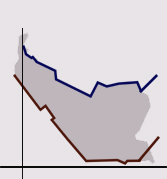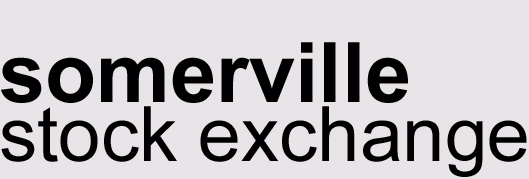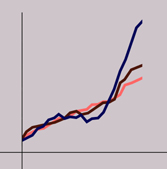

 |
|
| > | about the forum on the environment |
|
Below are things people told us they'd done-- as well as current events and news items that impacted Somerville's environment. We updated this page every few weeks for a year, beginning on March 31, 2012 and ending on March 31, 2013. |
|
forum on Somerville's environment - 3/16-3/31/13 |
|
|
An anonymous person is concerned about how much water she uses; she thought that a good way to do this would be to reduce the amount of water her toilet uses, since toilets often use more water than they need to. To do this, she put a sealed two-liter bottle in the tank, which reduces the amount of water the toilet uses when flushing. This both reduces how much fresh water she uses each year, and reduces how much polluted water she creates. The city is talking about banning styrofoam. While it's just in the early stages, a recent Boston Globe survey showed that 78% of residents were in favor of it. The concern over styrofoam is that it is difficult to recycle, and as a result, is bad for the environment. |
|
forum on Somerville's environment - 3/2-3/15/13 |
|
|
Tim Devin had a skillshare at his house, where people learned how to make nontoxic, cheap, and environmentally-friendly cleaning products. He and his friend Heather McCann researched alternatives to store-bought products, and showed people how to make them. Tim and Heather did this because they are concerned about the effect that store-bought cleaning products have on their own health, and on the environment. About 10 people participated. Massachusetts residents produce an average of 1,515 pounds of trash per person each year. This is slightly lower than the national average, which is 1,587 pounds per person per year-- but well above the average for other countries in North America and Europe: 1,080 pounds per person per year. And of course, countries in Africa, Asia and South America produce a lot less per person than that. According to an article in the Somerville Beat, there are 9 different local farms that offer farm shares pick-ups in Somerville. Residents can participate by paying an annual fee; this fee will then get them a weekly assortment of fresh, locally-grown (and often organic) food during the spring, summer, and fall. Having a farm share is good for a number of reasons. First, you get fresh food for less than it would cost at the store. Second, it supports local businesses, since they can charge more than distributors would give them. Third, it reduces pollution, since the food isn't shipped in trucks from across the country, or in planes or boats from other continents. Massachusetts and nine other states in the Northeast recently announced that power plants would have to reduce their carbon dioxide emissions by half by the year 2020. Carbon dioxide is a greenhouse gas; the more carbon dioxide in the air, the more heat is trapped and the more global temperatures rise. This cap is an attempt to limit global warming. |
|
forum on Somerville's environment - 2/16-3/1/13 |
|
|
Compost This is an all-volunteer composting initiative. Members gather compostable food scraps, and then compost them at the Somerville Community Growing Center; the dirt produced can then be used to grow food or other plants. Anyone can join the initiative. |
|
forum on Somerville's environment - 2/2-2/15/13 |
|
|
The city launched its Urban Agriculture Ambassador Program, in conjunction with Somerville-based Green City Growers. Through the program, fifteen residents will be trained on how to install and maintain gardens. They will then spend 30 hours each helping develop gardens around town. It's part of the city's push for healthy, local living. Living on Earth is a weekly news program that's distributed by Public Radio International, and broadcast on over 300 public radio stations. Since it was founded in 1991, the show has featured interviews, news items, and commentary on a wide range of environmental issues. It's recorded in Davis Square. Somerville's Earthworm recycling was founded as a coop in 1970, making it one of the first recycling organizations in the country. At first, Earthworm just focused on recycling paper; in 1974 it began educational programs on the need for recycling, and reorganized as a nonprofit. In the 1990s, it moved into collecting paper from businesses and government agencies as well. Its mission expanded even more in the 2000s, when it began recycling metal, glass, plastic, and e-waste. |
|
forum on Somerville's environment - 1/16-2/1/13 |
|
|
Groundwork Somerville aims to educate Somerville's youth and young adults about the environment. Since it was founded in 2000, its programming has focused on sustainability and green initiatives. These programs have included green jobs and internships, schoolyard gardens, river cleanups, and classes focusing on local food production. |
|
forum on Somerville's environment - 1/2-1/15/13 |
|
|
Millstone, which is a coop house near Davis Square, runs a bulk organic food-buying club. Members of the public can join the group. |
|
forum on Somerville's environment - 12/16/12-1/1/13 |
|
|
|
|
forum on Somerville's environment - 12/2-12/15/12 |
|
|
|
|
forum on Somerville's environment - 11/16-12/1/12 |
|
|
Somerville has 464 cars per thousand residents. This puts us well below the state average of 820 cars per thousand people, as well as below the country-wide average of 812 cars per thousand people. While this means that we cause less the auto-related polution than other communities throughout the country, we are well above the worldwide average of 131 cars per thousand people. |
|
forum on Somerville's environment - 11/2-11/15/12 |
|
|
|
|
forum on Somerville's environment - 10/16-11/1/12 |
|
|
|
|
forum on Somerville's environment - 10/2-10/15/12 |
|
|
Suzanne Lubeck reuses the plastic bags that her newspaper comes in as pooper-picker-uppers. She puts them in a pink plastic bag container from IKEA that she added ot the fence of the dog park at the corner of Vinyl and Summer Streets. They are for everyone to use. Suzanne has a basket at home where she can quickly stash the plastic bags when she gets her newspaper. When the basket is full, she restocks the container at the park. No, she dooesn't have a dog; she went with a friend once and think it's the craziest thing in the world to take a brand new plastic baggie from the stand for a two second poop pick up duty. These newspaper bags are the perfect size, clean and even come in pretty colors. Hubway, the bike-sharing company, installed four more stations in Somerville. By letting people rent bikes easily, the company provides a healthy, environmentally-friendly way for people to get around town. ACEEE (the American Council for an Energy Efficient Economey) named Massachusetts the number one state for energy efficiency. |
|
forum on Somerville's environment - 9/16-10/1/12 |
|
|
|
|
forum on Somerville's environment - 9/2-9/15/12 |
|
|
Suzanne Cope writes about being the Locavore in the City (www.locavoreinthecity.com). On her blog and in her upcoming book, she discusses her experiences urban gardening, canning, cheese making, among other efforts. She is a supporter of locally and sustainably sourced food because of its positive environmental and economic impact -- that, and it just tastes better. |
|
forum on Somerville's environment - 8/16-9/1/12 |
|
|
The old Kiley Barrel site at the corner of Prospect and Somerville ave received a $1m grant from the US Environmental Protection Agency. The site is what is known as a "brownfield"-- meaning that it is heavily contaminated. The funds will go to clean it up. |
|
forum on Somerville's environment - 8/2-8/15/12 |
|
|
|
|
forum on Somerville's environment - 7/16-8/1/12 |
|
|
|
|
forum on Somerville's environment - 7/2-7/15/12 |
|
|
Mr. Scott bikes instead of using a car, and bring his compost to Whole Foods. Christopher Reichert depaved his property on Bigelow St. He installed 3 new trees, and reduced hard surface by 95%. It is now a useful garden. Mycitygardens.com lets homeowners with extra yard space connect with others in their community who want to have space to garden. It has members in Somerville. Take a look if you'd like to connect with some of your neighbors! |
|
forum on Somerville's environment - 6/16-7/1/12 |
|
|
Steven Nutter and the Somerville Climate Action depaved his backyard in October 2010. Now it is used as a private community garden growing everything from popcorn to brussel sprouts to bees. He does this because he loves food! Additionally, the three adults who live on the property don't own cars (neither do his neighbors). The idea of having the entire yard paved for parking didn't seem like a good use of space. Finally, without a yard to mow, he can save money and spend his weekends having eating fresh food with friends! The city of Somerville launched a new website called “Somerville Urban Ag.” It features information and tips on urban agriculture, and is part of the city’s push to encourage more urban growing. Mark Winterer planted grass seed on bare ground thereby increasing the permeability of the ground. This means the ground will absorb storm water instead of the storm water running right over the bare ground. In June, Tim Devin and MJND helped remove the paving from someone's driveway, because the home-owner wanted to use the land as a garden. The depaving was organized by Somerville Climate Action, and over 20 volunteers helped out. In addition to creating more green space, this depaving reduces water run-off and the risk of flooding. The US Court of Appeals upheld the Environmental Protection Agency’s new rules on greenhouse gases (emissions that pollute the air, and add to global heat levels). These new rules will affect the emissions created by factories, power plants and cars. They will limit how much carbon dioxide newly-built factories can produce, and lays the groundwork for new standards on car emissions. |
|
forum on Somerville's environment - 6/2-6/15/12 |
|
|
Mark Winterer is a co-founder of Recover Green Roofs, a design/build/maintain firm, building green roofs and walls on residential and commercial buildings. Green roofs create more green space in urban environments and help minimize the environmental impact of buildings. The Growing Center gave a workshop on how to compost your food scraps (which is a way to recycle unused food, so that it doesn't end up in a landfill). This was one of many free workshops and events the Center hosts. |
|
forum on Somerville's environment - 5/16-6/1/12 |
|
|
Jonah Petri composts almost everything, and then recycles what he can. As a result, he only creates one bag of garbage every other week (for two people and a baby!). He bikes to work nearly every day (even during snowpocalypse last year); and when he can't bike, he takes the T. He has never driven to work, not even once! He bought a whole house electricity monitor, and uses it to study and minimize his electricity use. At night, his whole house draws 70 watts—which is less than a single computer & monitor. The Environmental Protection Agency gave its annual “report card” evaluation of the Mystic River. It received a “D” grade. The overall quality of the river is pretty poor—due, in part, to the over 14,000 gallons of sewage that are dumped into it each year from local storm drains. The river’s grade should increase this year, when the storm drains will cease emptying into the river. Sarah Howard runs Somerville-based Earthos institute, a nonprofit that promotes regional resource self sufficiency. She helps communities build local, cooperative economies with vibrant urban spaces. She hopes that one day communities around the world will know how to strategically use their resources (water, energy, arable land, biodiversity, people capital) to improve well-being of all, while respecting the limits of ecosystems. She's now working with Somerville Community Corporation and resident groups to create a food coop hub that will offer year-round local, healthy, affordable food and other needed amenities. This summer she will also try to improve her own food growing skills, to do her part to reduce dependence on food imports from water scarce regions like California. |
|
forum on Somerville's environment - 5/2-5/15/12 |
|
|
On May 3, the Somerville Chamber of Commerce held a networking event and showcase for local green businesses, called B2Green. Seth Itzkan hosts the monthly meetings for Somerville Climate Action at his office space in Davis Square. |
|
forum on Somerville's environment - 4/16-5/1/12 |
|
|
Maureen Barillaro is part of Somerville Climate Action, which is a “grass-roots collaborative working for a safe and stable climate while helping to build a resilient, just, and sustainable community.” As part of SCA, Maureen helps organize the annual Living Green festival, which is a family-friendly event that offers workshops, activities, information and hands-on learning about how to live a more Green and Sustainable life. She also helped organize the “350 Challenge,” which aims to encourage more environmentally-friendly acts. Most recently, she helped put together the “E-Waste Recycling Drive,” which got people to bring toxic electronics to a collection point in Davis Square instead of throwing them into the garbage. |
|
forum on Somerville's environment - 3/31-4/15/12 |
|
|
MJND is a Somerville resident who composts her food scraps, and recycles paper and plastic. She uses reusable shopping bags. She also has metal cups and utensils at work, so she doesn't have to use disposable ones. All of this cuts down on the amount of trash she makes. On April 11, the city of Somerville announced that the Board of Alderman is working on zoning laws to encourage urban agriculture. This would allow farms (including indoor ones) to operate in Somerville. Somerville Climate Action organized a viewing of "Bag it", which is a documentary about the effects of plastic bags on the environment. The film was shown at the Somerville Theatre on April 11th. Tim Devin also composts his food scraps, and recycles paper and plastic-- and also reuses ziplock bags, and uses resuable shopping bags. He brought a cloth towel to work, so he doesn't need to use paper towels anymore. He also brought a plate, a cup, and utensils to work, so he doesn't have to use disposable ones. All of this cuts down on the amount of trash he makes. |
|

![]() Community:
$27.10
Community:
$27.10
![]() +$1.33
+$1.33![]() +5%
+5%
![]() Environment:
$14.51
Environment:
$14.51
![]() +$0.30
+$0.30![]() +2%
+2%
![]() Creative: $17.33
Creative: $17.33
![]() +$0.55
+$0.55![]() +3%
+3%